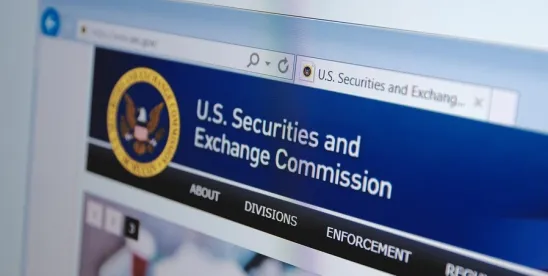On May 5, 2020, the Municipal Securities Rulemaking Board found that continuing disclosure references to the coronavirus pandemic (“COVID-19”) had jumped 25 percent in the course of a single week. After a statement by the Securities and Exchange Commission (“SEC”) encouraging issuers to make voluntary COVID-19 disclosures, one week later the number of disclosure references had jumped another 30 percent. Of 50,000 municipal issuers, currently approximately 5,000 have made voluntary COVID-19 disclosures.
The news cycle is dominated by events that are being interpreted through the lens of the pandemic, and municipalities are challenged to provide updates to the marketplace as to the impact of COVID-19 on governmental revenues, operations, and forecasts. Whether crafting your pandemic disclosure for an offering document, or evaluating what, if anything, to voluntarily disclose via EMMA, members of K&L Gates public finance team analyze in this alert the current guidance from the SEC and our thoughts on how to proceed with your pandemic disclosures.
The SEC Encourages Voluntary Supplemental COVID-19 Disclosure
On May 4, 2020, the SEC issued a statement encouraging municipal issuers to make voluntary disclosures describing their approach to the COVID-19 pandemic. The SEC noted that the vast majority of municipal securities are held by retail investors who benefit from the tax-exempt status and therefore may need additional information, as opposed to corporate securities more often held by large pension funds or retirement accounts.
The SEC’s statement acknowledged the challenges of providing disclosure as the pandemic unfolds—the difficulty of describing current financial status and operating conditions in the midst of circumstances that may be changing on a daily and weekly basis; the lack of audited review; and the uncertainty of providing projections based on future circumstances based on changing estimates and assumptions. Nevertheless, the SEC recommended that issuers provide current issuer- and security-specific information for the benefit of investors and the marketplace.
With regard to projections, the SEC encourages issuers to disclose projections regarding the potential future impact of COVID-19 on their financial and operating conditions, despite uncertainty around future operating conditions, resource needs, and evolving strategies to respond to the pandemic that will be subject to change.
From the SEC’s perspective, concerns about the liability from the voluntary disclosures were minimized when compared to the value of the information to the marketplace, by (1) the ability to wrap the disclosure in disclaimers and cautionary language, (2) the need to keep consistent with other required issuer disclosure, and (3) the SEC’s expectation that it would not penalize issuers for good faith disclosure efforts.
Nonetheless, the SEC acknowledges that each issuer will need to make its own determination, and will need to evaluate its concerns about liability in consultation with its counsel.
Suggested Content for Voluntary COVID-19 Disclosure
The SEC statement suggested that issuers consider disclosure covering:
(a) Operations and Financial Condition. Along with every sector of the economy, it is expected that COVID-19 is also materially adversely impacting municipal finances, operational availability, and ability to provide services at typical levels, and impacts to costs that municipalities must bear. Issuer disclosure could include information regarding: (1) current operational and financial status, including decreases in revenues and delays in collection of revenues; (2) impacts to operational and financial condition, including unbudgeted costs; and (3) how operational and financial condition may change the pandemic response evolves. The SEC notes that historic comparisons are unlikely to be informative in the context of the pandemic.
(b) Sources of Liquidity. The SEC suggests municipalities disclose cash on hand, reserves or other funds or liquidity facilities the municipality has access to, what liquidity limitations may exist, and whether current liquidity is expected to be adequate to fund essential services and make timely debt service payments.
(c) Federal, State, and Local Aid. What aid sources the issuer has or is looking into and when such aid may be available, and what material terms or conditions are attached to the aid that may affect the finances or operations of the municipality.
(d) Reports Prepared for Other Governmental Purposes. Where existing reports are being created with material information on municipal finances and operations, they should be leveraged for disclosure, and/or made available to investors through EMMA rather than only being available on an entity’s website.
Liability Concerns in Sourcing Information for Voluntary Disclosure
Given the SEC’s recent history in carefully examining municipal disclosures, issuers may have liability concerns in making a voluntary disclosure where not required by existing continuing disclosure undertakings. We believe there are several options for creating meaningful disclosures to the marketplace without generating material additional risk of liability.
Choosing to create a voluntary disclosure is easier where it can be based on existing public records you have generated in response to the pandemic as it has evolved. Your entity may have already prepared and publicly discussed with your governing body items such as (a) interim budget updates, (b) updated revenue forecasts, (c) revised service or utilization expectations, (d) COVID-19 response plans for operations and staffing, or (e) communications to the public describing your situation. Historically, the SEC has deemed such public records as communications to the marketplace, and thus there may be little additional risk in sharing such data on EMMA, with appropriate disclaimers and cautions.
Your municipality may also consider providing general guidance that is descriptive of the COVID-19 impact without sharing specific figures and forecasts, in an effort to provide a more “evergreen” update that would not need to be updated with every new development related to the pandemic and in your, state, or federal responses. You may wish to discuss (a) general economic impacts to revenues and timing of receipts, as experienced to date and what is reasonably expected in the coming months; (b) changes undertaken, and that you reasonably expect to undertake, to respond to COVID-19 in your operations, staffing, safety measures, service levels, or availability; and (c) anticipated changes to budgets and your costs given both the demands and the limitations placed on your entity by COVID-19.
Where existing public records or general guidance is not available, we recommend consulting with your counsel and bond counsel to evaluate your situation and arrive at a tailored determination as to whether or not to create a disclosure.




 />i
/>i
